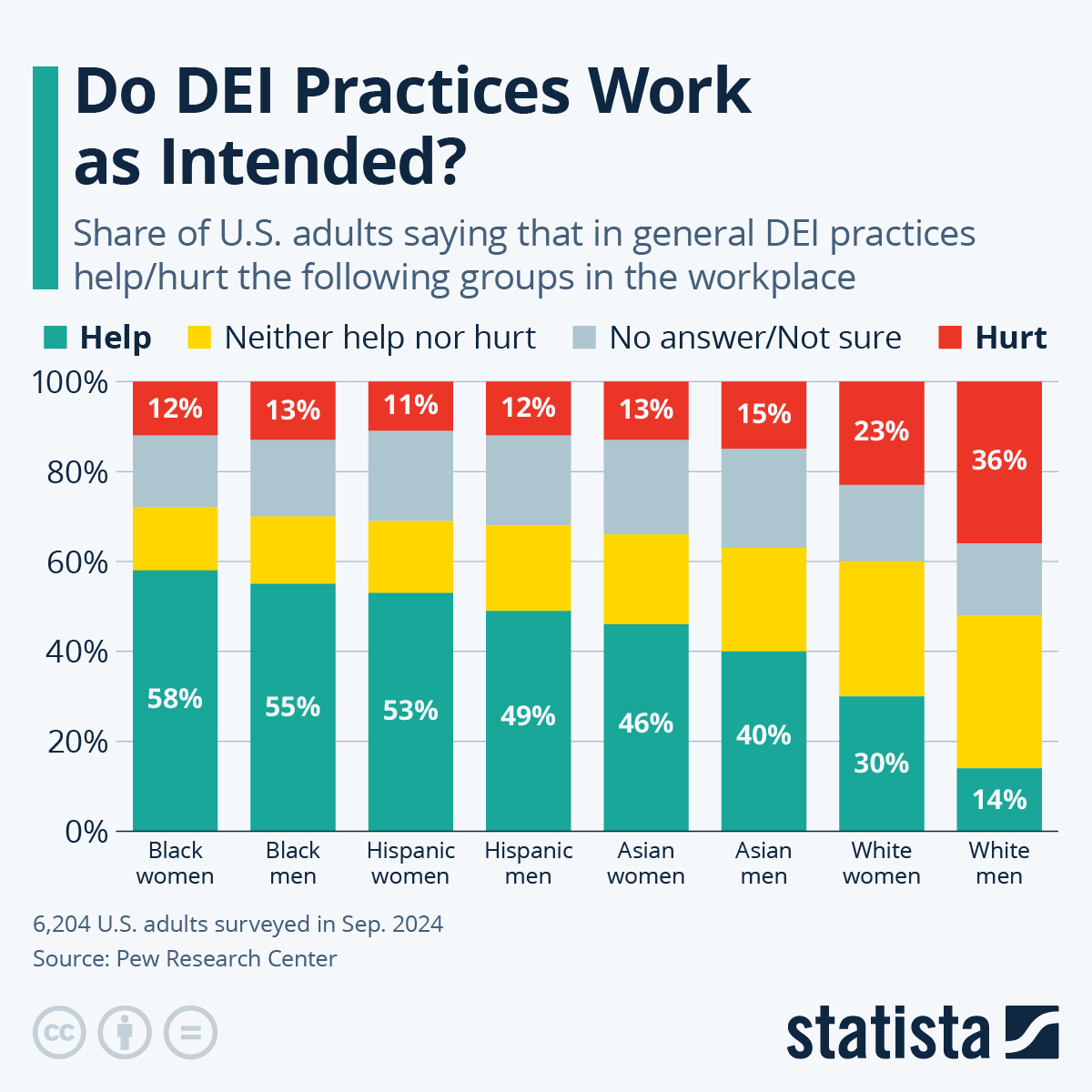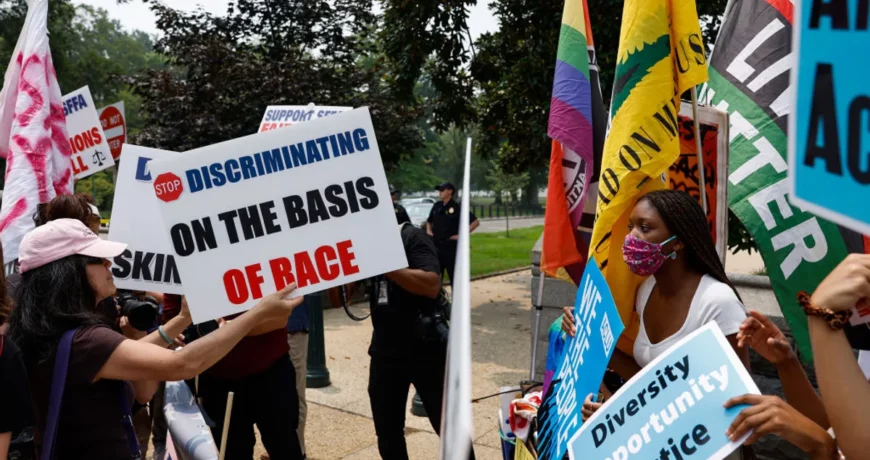The Removal of DEI Programs in 2025: A Complex Issue with Far-Reaching Consequences Leave a comment
In 2025, a significant shift occurred in the landscape of diversity, equity, and inclusion (DEI) initiatives as many organizations across the United States began dismantling their DEI programs. This decision stemmed from a variety of factors, including legal challenges, changing political climates, and evolving perspectives on the effectiveness of DEI initiatives. Understanding the history and context of DEI is crucial to grasping the implications of its decline.
A Brief History of DEI
The roots of DEI can be traced back to the Civil Rights Movement of the 1960s, which sought to dismantle systemic racism and discrimination against marginalized groups, particularly Black Americans. Initial efforts focused on equal opportunity and affirmative action, aiming to level the playing field in employment and education. Over time, the concept of DEI evolved to encompass a broader range of identities, including race, ethnicity, gender, sexual orientation, disability, religion, and socioeconomic background.
- Diversity: Refers to the presence of individuals with different backgrounds and identities within a given setting.
- Equity: Focuses on ensuring fair treatment, access, and opportunity for all individuals, taking into account historical and systemic disadvantages.
- Inclusion: Emphasizes creating environments where all individuals feel valued, respected, and have a sense of belonging.
Why DEI Was Implemented
DEI initiatives were implemented to address historical and ongoing discrimination and create more equitable and inclusive workplaces and institutions. Research has consistently shown that diverse teams are more innovative, creative, and better equipped to solve complex problems. Furthermore, DEI is seen as a moral imperative to rectify past injustices and create a society where everyone has the opportunity to reach their full potential.

The Role of Government and the New Executive Order
The government has played a significant role in shaping DEI through legislation, regulations, and executive orders. Landmark legislation such as the Civil Rights Act of 1964, the Equal Employment Opportunity Act of 1972, and the Americans with Disabilities Act of 1990 prohibited discrimination based on various protected characteristics. Executive orders, issued by the President, have also been used to promote DEI within federal agencies and organizations that contract with the government.
The 2025 executive order that contributed to the dismantling of DEI programs could have taken a different approach. It might have focused on:
- Redefining DEI: Perhaps shifting the emphasis away from group-based identities and towards a focus on individual merit and equal opportunity, potentially limiting the use of affirmative action-type programs.
- Restricting Funding: Potentially limiting or eliminating federal funding for DEI-related programs and initiatives, thus incentivizing organizations to scale back their efforts.
- Legal Challenges: The executive order could have encouraged or supported legal challenges to existing DEI programs, arguing that they are discriminatory or violate the equal protection clause of the Constitution.
Arguments for and against DEI Programs
The debate surrounding DEI programs has been ongoing for years, with passionate arguments on both sides. Proponents of DEI initiatives argue that they are essential for creating workplaces and institutions where individuals from all backgrounds feel valued, respected, and have equal opportunities to succeed. They point to studies showing that diverse teams are more innovative and productive, and that DEI programs can help address systemic inequalities that have historically disadvantaged marginalized groups.

Opponents of DEI programs, on the other hand, argue that they can be divisive and counterproductive. They contend that some DEI initiatives focus too heavily on race and gender, leading to reverse discrimination and resentment. They also argue that DEI programs can create a culture of victimhood and entitlement, rather than focusing on individual merit and achievement.
The Impact on Black America and the Call for Economic Empowerment
The removal of DEI programs has had a disproportionate impact on Black Americans, who have historically faced systemic barriers to advancement in education, employment, and other areas. While some argue that DEI programs have not always been effective in addressing these disparities, they have nonetheless provided a platform for raising awareness about racial inequality and promoting opportunities for Black individuals. The elimination of DEI programs raises concerns about a return to more discriminatory practices and a widening of the racial wealth gap.

Taking Action: A Call for Economic Empowerment
In the wake of these changes, it’s more critical than ever for the Black community to take proactive steps to foster economic growth and create opportunities. One powerful way to do this is by supporting Black-owned businesses and building a robust economic ecosystem within the community.
Join the Movement: Support Black Businesses at USABuyBlack.com
USABuyBlack.com serves as a vital platform connecting consumers with Black-owned businesses across the nation. By participating in this marketplace, you can directly contribute to the economic empowerment of Black entrepreneurs and communities. Here’s how you can get involved:
- Become a Vendor: If you are a Black business owner, list your products or services on USABuyBlack.com to reach a wider audience and connect with customers who are actively seeking to support Black businesses.
- Become a Buyer: Consciously choose to shop at Black-owned businesses by exploring the diverse range of products and services available on USABuyBlack.com. Your purchasing power can make a real difference.
- Show Your Support: Even if you’re not a business owner or in a position to make purchases, you can still contribute by joining our mailing list and sharing this article and information about USABuyBlack.com with your network. Raising awareness is crucial to expanding our reach and impact.
The removal of DEI programs presents a challenge, but it also highlights the importance of self-determination and collective action. By supporting initiatives like USABuyBlack.com, we can create our own pathways to economic empowerment and build a more equitable future.
It remains to be seen what the long-term effects of the removal of DEI programs will be. However, it is clear that the conversation about diversity, equity, and inclusion is far from over. As our society continues to grapple with issues of race, identity, and inequality, it is essential that we find new and innovative ways to create a more just and equitable world for all.
Join the discussion! Leave your thoughts below!

